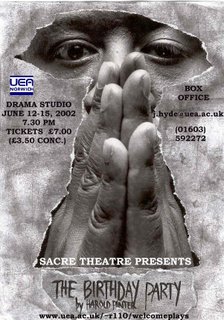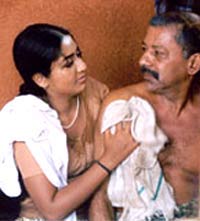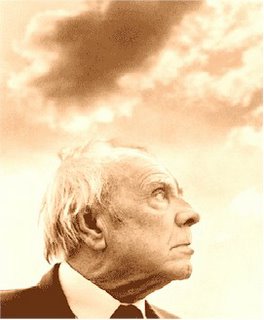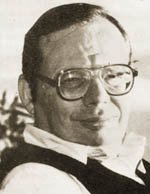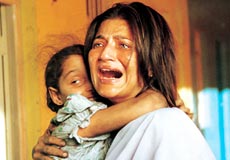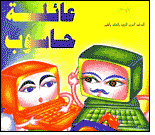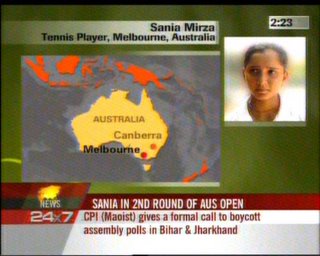Nandita HaksarThe dramatic jailbreak by the Maoists in Jehanabad has been front-page news in all the newspapers and lead story in the TV channels. I have been reading the papers and hearing the news coverage hoping to understand the reasons behind this extreme action by the Naxals. Every TV Channel showed a pamphlet that they distributed on the occasion that enlisted their demands. But no one gave us the details of those demands or commented on whether they were just or unreasonable.
The event is being looked upon as a problem of law and order. Discussions on the jailbreak center on questions of national security. In fact if we hear any discussions we only hear the views of various security agencies and the debates are all concerned with dealing with the "Naxalite problem". Some security experts even think it is problem linked to global terrorism.
In my opinion the problem is not with the naxalites but with the problems they seek to address. What are these problems? The naxalites were the first to focus on the adverse effects of big development projects on the poor. In fact it has been my privilege to represent several Naxalite leaders and organizations in the Supreme Court as well as in other courts. It was in the course of doing these cases that I learnt about the terrible conditions of the landless labourers, adivasi forest dwellers, dalits and urban poor. As a human rights activist I had an opportunity to travel to many parts of the country to document human rights violations by the State on the poorest citizens of our country.
I still remember travelling to Santhal paragnas in the 1980s to discover that thousands of adivasi miners had become unemployed after the nationalization of coal. As a protest they had organized themselves into Jan Mukti Morcha and started a peoples’ coal mine. That coal mine had better safety record than the neighbouring nationalized mine. In addition the Naxalites ran a school and a small dispensary. Their only demand was that the government to take over their mine and provide employment to the people. The mine ran for more than a year and then one day it was bull dozed, the leaders were all put into jail and the school and dispensary shut down. Is this justice?
Then there was the agitation by the Mazdoor Kisan Sangram Sangathan (MKSS) for land rights of the poor in Jehanabad. Once again the State responded with a police firing which resembled the infamous Jallianwala Bagh in more ways than one. Poorest of the poor died, some were permanently injured. I filed the case in the Supreme Court and the court did award some paltry sum to the victims of the police firing but how could they claim the compensation when the Government had banned MKSS and claiming the compensation would result in his arrest. Is this justice?
I have traveled to remote areas of Bihar and Jharkhand, Madhya Pradesh and Andhra Pradesh and more recently to Tamil Nadu, UP and Karnataka. I have been deeply impressed by the fact that the Naxalites are constantly learning from their past mistakes. In the beginning their emphasis was on individual annihilation today they are an integral part of open, mass organizations and democratic movements. They have shown a deep commitment to the cause of fighting the root causes of poverty, a dedication to constantly analyzing the causes of socio-economic injustice and courage to identify themselves with their fellow citizens. Many of the Naxalites give up the comfort of their homes to live in leach infected forests without food and with constant threat of arrest, torture or death.
It was their very real concern for the lives of ordinary people that they kept making announcements over a loud speaker to reassure them before carrying out the jailbreak. Is this concern about the safety of the people a reflection of a terrorist ideology? And yet the national media invariably equated the acts of the Maoists with the "activists" of the Ranvir Sena. In fact the naxalites are a part of the democratic movement for socio-economic justice while the Ranvir sena is an illegitimate militia supported by the State to crush the voice of the people.
The real question that we should all be asking is why do Naxalites have to conduct militant struggles to enforce the legal and Constitutional righ ts of our people? Why do people living next to a dam have no portable drinking water? Why do people living next to a gigantic steel mill have no employment and why are adivasi forest dwellers treated as thieves if they go their ancestral homes to gather minor forest produce.
The second question we should be asking is why do so many people support the naxalite movement and are willing to go to jail, suffer torture and even face police firings in support of the movement which has spread from four states in 1998 to 13 states in 2005?
Has this spread to do with the new economic policy that was introduced in 1990. A policy which has severely undermined the economic sovereignty of our country. It has resulted in making self respecting farmers into destitute. A destitution which has forced many of them to commit suicide leaving their wives and children on the edge of starvation. It is a policy which has disenfranchised millions of our citizens making the constitutional fundamental rights meaningless for them.
The dramatic jailbreak should be seen as an opportunity to address the problems of institutionalized poverty, injustice, oppression and exploitation. If we do not our national security is indeed in danger.
## Translation of Nandita Haksar's column in Hindustan, Hindi daily. Haksar is a senior Supreme Court lawyer


